#JUSTICE FOR GREGOR SAMSA
Text
the metamorphosis by franz kafka is really just gregor asking
"would you love me if i was a bug?"
and his family saying "no"
#this entire book made me sad#and i teared up at the end#beautiful book tho#great read#BUT WHY DID THEY DO MY MAN LIKE THAT#JUSTICE FOR GREGOR SAMSA#HE DESERVED BETTER!#reading#books#kafka#franz kafka#literature#dark academia#the metamorphosis
289 notes
·
View notes
Text
Someone give Franz Kafka a degree in Yapology 😭😭😭
#im trying to read the metamorphosis and I’ve gone through so many pages of yapping#it’s a good story this isn’t a hate post#justice for Gregor Samsa#gregor samsa#the metamorphosis
4 notes
·
View notes
Text
muse tags, here we fucking go
1/????
#[ the eternal witch // angela anne huell ]#[ lay my curses out to rest // ashaf ]#[ beast in beauty's clothing // guideau ]#[ in death her beauty shines // phanora kristoffel ]#[ death's dearest messenger // johan ]#[ with eyes that burn like the sun's light // oscar orlencia ]#[ i have nothing but my sorrow // roland ]#[ carry me from a false deliverance // angela ]#[ i bet a cup of coffee will help // chesed ]#[ feigning silence through a holy fate // faust ]#[ i know exactly why i walk and talk like a machine // gregor samsa ]#[ a sinner's blood pulses through me // odelia samsa ]#[ a chivalrous knight spreading justice // don quixote ]#[ mechanical hands are the ruler of everything // dante ]#[ the sea it calls out to me like a siren's song // ishmael ]#[ spider lilies set aflame // ryoshu ]#[ lady luck might even be on your side // rodya ]#[ the bird fights its way out of the egg // sinclair ]#[ i am nobody ; nothing at all // outis ]#[ with each bite does your sanity die // kromer ]#[ i who denies all // dongrang ]#[ defected sunshower // dongbaek ]#[ oh darling don't you ever grow up // wendy darling ]#[ flowers bloom until they rot and fall apart // eurydice ]#[ death follows me // thanatos ]#[ she who sleepwalks without a sound // hypnos ]
1 note
·
View note
Text
Kafkaesque
Do you know Franz Kafka? Franz Kafka is a Czech writer who is famous for his surreal and unsettling stories. Kafka's works often feature characters who are trapped in nightmarish scenarios that they cannot escape from, and who are subjected to bureaucratic systems that are arbitrary, oppressive, and often absurd.
The term "Kafkaesque" is often used to describe situations that are surreal, disorienting, and anxiety-inducing, often involving a faceless, bureaucratic system that seems to operate according to its own arbitrary rules and logic.
Some of the key characteristics of Kafkaesque situations include:
An overwhelming sense of confusion, disorientation, or helplessness.
A feeling of being trapped or powerless, with no clear way out.
A sense that the rules governing the situation are arbitrary or irrational.
A feeling of being watched or monitored, with little or no privacy.
A lack of clear communication or understanding between people or groups.
A sense of dread or foreboding, with the suggestion that things may get worse before they get better.
Examples of Kafkaesque situations:
A person trying to navigate a complex and opaque bureaucratic system, such as an immigration office or a healthcare system, and finding themselves mired in paperwork, waiting lists, and conflicting information.
A person who is accused of a crime they did not commit, and who is caught up in a legal system that seems to be working against them, with no clear way to prove their innocence.
A person who is subjected to heightened surveillance or monitoring, such as a whistleblower who is being targeted by their employer or government agency.
A person who is struggling with a mental health issue or addiction, and who finds themselves caught in a cycle of treatment and relapse, with little support or understanding from those around them.
There are several literary techniques commonly used in Kafkaesque works, which contribute to the sense of disorientation, absurdity, and isolation that are characteristic of these works. Some of them are:
Surreal imagery: Kafkaesque works often include surreal or dreamlike imagery, which can create a sense of disorientation and unease. For example, in "The Metamorphosis," the image of Gregor Samsa waking up to find that he has been transformed into a giant insect is both bizarre and unsettling.
Repetition: Kafkaesque works often use repetition to create a sense of monotony or futility. This can be seen in "The Trial," where the protagonist Josef K. repeatedly tries to navigate the legal system, but seems to make no progress.
Ambiguity: Kafkaesque works often leave key aspects of the story ambiguous or unexplained, which can create a sense of uncertainty and confusion for the reader. For example, in "The Castle," the purpose and authority of the castle is never fully explained.
Humor: Despite their often bleak subject matter, Kafkaesque works sometimes use humor to offset the darkness and absurdity of the situations they depict. For example, in "The Trial," there are moments of dark humor that arise from the absurdity of the legal system.
Symbolism: Symbolism is often used in Kafkaesque works to convey deeper meanings or themes. For example, in "The Metamorphosis," the image of Gregor Samsa as an insect can be seen as a metaphor for his alienation and dehumanization.
Irony: Irony is also used in Kafkaesque works highlight the gap between the way things are and the way they should be. For example, in "The Trial," the legal system is meant to uphold justice and fairness, but instead it is arbitrary and oppressive.
Many writers have been inspired by Franz Kafka's works to create their own stories that evoke a similar sense of unease and disorientation. If you are interested in Kafkaesque, you can read these wonderful books:
"The Trial" by Franz Kafka: This novel is perhaps the quintessential example of a Kafkaesque work. It tells the story of Josef K., who is arrested and placed on trial but never informed what crime he is accused of doing. Josef K. gets increasingly isolated and alienated as he attempts to navigate the court system, and he begins to doubt his own sanity.
"The Castle" by Franz Kafka: This novel is another classic example of Kafkaesque literature. It tells the story of a land surveyor who is summoned to a remote village to do a job, but finds himself unable to gain access to the castle that supposedly governs the area. As he tries to make sense of the bizarre and confusing situation he finds himself in, the land surveyor becomes increasingly frustrated and disillusioned.
"The Metamorphosis" by Franz Kafka: This short story tells the story of a man named Gregor Samsa who wakes up one day to find that he has been transformed into a giant insect (I think it's a cockroach). As he tries to come to terms with his new body and the way that others react to him, Gregor becomes increasingly isolated and estranged from his family and society.
"Blindness" by Jose Saramago: This novel tells the story of a sudden epidemic of blindness that sweeps through an unnamed city, leaving almost everyone without their sight. As society breaks down and people struggle to survive, the characters are forced to confront their own fears and prejudices, and to find new ways to navigate the world around them.
"The Handmaid's Tale" by Margaret Atwood: This dystopian tale depicts a future world in which women are oppressed and compelled to have offspring for the ruling class. Offred, the heroine, is forced to traverse an arbitrary, brutal, and degrading system as she struggles to live under this repressive dictatorship.
If you want to read more posts about writing, please click here and give me a follow!

#creative writing#writing#writeblr#writerscommunity#writer things#writers#writersociety#on writing#writblr#writers on tumblr#kafkaesque#the metamorphosis#franz kafka#daily kafka#writers block#write#writers and poets#female writers#writing community#ao3 writer#writing things#writing prompt#writing inspiration#writing advice#writing tips
74 notes
·
View notes
Note
could you possibly make a list of your favorite shows/the shows you've been reblogging lately? i'm curious about quite a few of them but it's a little hard to track :)
Absolutely!! I've never had to write a summary before and it turns out it's really hard so just ask if you want to know more about anything in particular.
Beyond Evil
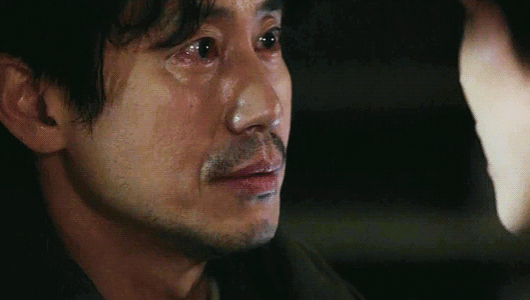
If I'm not watching this show it's just playing on repeat in my head 24/7.
Beautiful, insufferable, privileged and severely repressed sack of mental disorders and daddy issues detective Han Juwon goes to a rural police substation to pursue another cop whom he suspects of being a dilfserial killer. There's literally no way for me to put this show into words it's about guilt, community, love, justice, being insane, being gay, just watch it, it's on netflix and it will change your DNA like drinking Chernobyl water.
Kinnporsche

The dumbest disaster of a man is forced into becoming a bodyguard for a mafia heir who's both the worst man you've ever met and a 13 year old girl with an embarrassing crush. Toxic, problematic sex pig material, you really need to know what you're signing up for.
Warnings for dubcon.
The Devil Judge
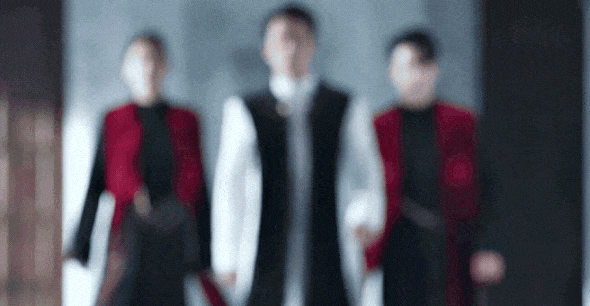
Beauty and the Beast but Belle is a cute twink who refuses to move out and forcefully acts as a walking conscience for a morally questionable judge on a vigilante quest for justice. If you ponder the concept of justice itself, what it is, how it should be achieved, how it can be achieved, this show won't give you any answers. Catholic but in a horny way.
Other than the toxic homoerotic corruption arc, I'd recommend this one just for the best female characters I've ever seen.
Strangers from Hell
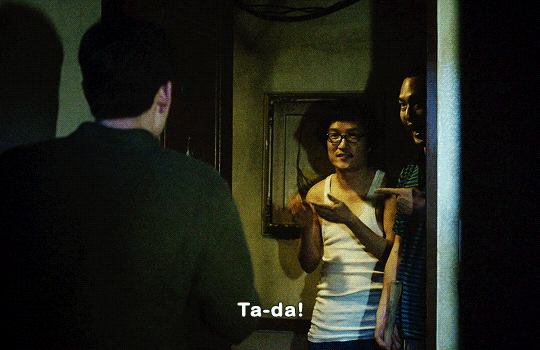
This one's easy: Hannibal but it happens over like 10 days. Kafka's Metamorphosis but Gregor Samsa has a hot cannibal as the boy next door and also capitalism sucks. Eat your boss. Elope.
Not Me
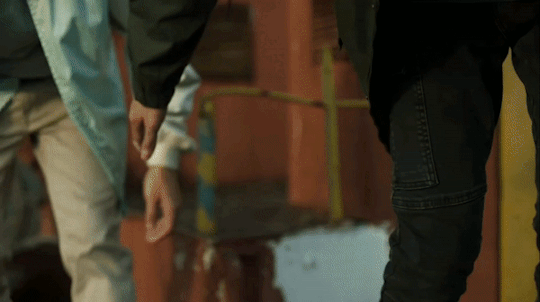
Rich boy takes his twin's place to find out who beat him into a coma and accidentally joins an ecoterrorist antifa biker gang, experiences ego death and finds out about gay sex.
Bad and Crazy

Fight Club but gayer.
The Untamed

Do not ask me to explain the plot of the Untamed, I beg of you. Just watch the first 50 episodes, you'll get it eventually.
#literally rewatching beyond evil right now#everyone go watch beyond evil#i might just make a rec post for BLs specifically at some point but this is a more generic one
49 notes
·
View notes
Text
Metamorphosis
The incomparable Valery Dymshits writes:
Yesterday at dinner my son Senya said: “As Gregor Samsa awoke one morning from uneasy dreams he found himself transformed in his bed into a foreign agent.”
“When Friday comes … identify foreign agents.” Meme courtesy of Andrei Pivovarov
Andrei Pivovarov
Facebook
October 8, 2021
⚡️The Justice Ministry has placed 9 more journalists and 3 companies on its …

View On WordPress
#"foreign agents"#Andrei Pivovarov#Caucasian Knot#coronavirus#Current Time (Radio Svoboda)#Dmitry Muratov#Eugene Simonov#excess deaths#fudging statistics#Gregor Samsa#Radio Svoboda#Russian Justice Ministry#Sever.Realii (Radio Svoboda)#Tatyana Voltskaya#Valery Dymshits
0 notes
Text
justice for gregor samsa wtf
4 notes
·
View notes
Text
The Metamorphosis Review: Makers Have Not Done Justice to the Story of the Novella
It is not often that companies take inspiration from novels with unusual stories to make video games. The Metamorphosis is one such game that has taken inspiration from Franz Kafka’s novel of the same name. The game creates an enchanting fictional world that piques the curiosity of every gamer. Despite showcasing real locations and a puzzle platformer design, The Metamorphosis offers a gripping narrative that tends to be confusing as well.
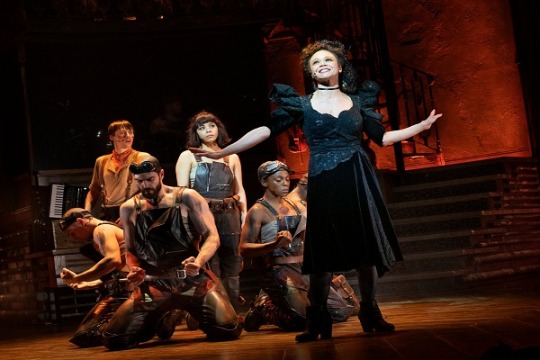
All those who have read the novella will notice that in the book, Gregor Samsa wakes up one day to discover that he has turned into a giant insect. However, the makers have included Gregor’s gradual transformation in the introduction of the game. A person plays the game with the character of Gregor Samsa, but the fictional character does not turn into a giant insect. The basic idea of the game is to move around and navigate in a world from the outlook of a cockroach.
‘Do Things Just Like an Insect’
The player gets to do things just like an insect. Crawling over pencils, desks, books kept on tables, the character of Gregor has to search for a way forward. This game also shows how Gregor falls into the ink of a letter and enters a void. After entering a void, the cockroach climbs over giant letters. During the game, just like the situation of a normal insect, Gregor crawls on a toast and gets trapped in butter. The consequence of this troublesome situation sees a human pick up the toast and take a bite of it. Gregor gets a closeup of the man’s throat. The human chokes on the cockroach and spits him out. From there, Gregor lands on a shelf and eventually continues on his way.
The Metamorphosis Takes a Dark Turn
One of the dark points of the game is that during Gregor’s transformation, the changing human crawls through hallways with hanging pictures that mock the main character as he passes them. As the game progresses, the faces in the photos start to match Gregor’s brand-new insect form. These faces transform into appalling exoskeletons with weird eyes.
The Metamorphosis also has a lot of challenges that show Gregor conversing with other insects. We also see Gregor perform a few tasks to move forward in the game. Since Gregor has turned into an insect, and the area created in the game is vast, navigating through the game becomes a tedious task. Even though there is a map available for every area, it is of no use until the sense of navigation comes into the picture. The gameplay also showcases mindless wandering around to search for another clue.
The Makers Could Have Done Justice to the Story
The Metamorphosis has a short game time and could have done justice to the story. Therefore, it is safe to say that the makers of the game have not done justice to the story of the book. However, the fate of the game will be decided over the years as people download it and play. If the reviews work out in favor of The Metamorphosis, it will be evident that the unique adaptation of the novel was successful. This game is available for gamers on Xbox One, Nintendo Switch, and PC.
Titled Die Verwandlung initially in German, The Metamorphosis is a novella authored by Franz Kafka, a German-speaking Bohemian novelist. The short novel was first published in the year 1915. The novella revolves around the story of a salesman Gregor Samsa who one day wakes up as a gigantic insect. Initially, Samsa thinks that the transformation is temporary and starts to think about the consequences of the sudden Metamorphosis.
Jackson Henry. I’m a writer living in USA. I am a fan of technology, arts, and reading. I’m also interested in writing and education. You can read my blog with a click on the button above.
Source-Makers Have Not Done Justice to the Story of the Novella
0 notes
Video
Nabokov on Kafka - The Metamorphosis: A Study from Renitzc on Vimeo.
“Literature was not born the day when a boy crying "wolf, wolf" came running out of the Neanderthal valley with a big gray wolf at his heels; literature was born on the day when a boy came crying "wolf, wolf" and there was no wolf behind him.”
The Metamorphosis - A Study: Nabokov on Kafka
Directed by Peter Medak
Vladimir Nabokov (Christopher Plummer) Teaches Kafka at Cornell
“From my point of view,” writes Vladimir Nabokov in Lectures on Literature, “any outstanding work of art is a fantasy insofar as it reflects the unique world of a unique individual.” He also says it in the video above, a lecture on Franz Kafka’s The Metamorphosis originally aired by WQED in Pittsburgh. (Find Kafka’s classic work in our collection of Free eBooks and Free Audio Books.) But he doesn’t say it himself; he says it through Christopher Plummer, who portrays Nabokov teaching in a 1989 re-creation of late-1940s Cornell University. Literarily inclined students of the era (including United States Supreme Court Justice Ruth Bader Ginsburg) must have experienced a similar introduction to Kafka in Nabokov’s classes, perhaps down to his sketch of poor Gregor Samsa’s beetle form. But this production adds the theatrical touch, surely not a feature of Cornell’s lecture halls in those days, of spotlighting Plummer-as-Nabokov and darkening everything else whenever he reads from the story.
Plummer himself says a few words about Nabokov at the beginning of the video, and he assumes the Russian novelist’s persona at about 1:38. Does Plummer nail Nabokov’s distinctively multinational accent? Does Nabokov’s observation that Gregor Samsa never uses his wings mean anything of importance? Will we ever enter another era when public television resurrects cultural luminaries to give lectures by way of our time’s most respected thespians? This half-hour program gives us many such questions to ponder, and even if we can’t answer them, those of us who failed to draw inspiration from the Robin Williams of Dead Poets Society will surely find, in Plummer’s majestic eccentricity, a briefer but more memorable teacherly performance.
SOURCE: openculture.com/2012/05/vladimir_nabokov_channelled_by_christopher_plummer_teaches_kafka_at_cornell.html
0 notes
Quote
And yet it is at this point—the point at which Nabokov wishes to “concentrate [...] upon the artistic moment”—that his reading of Kafka commits the cardinal sin in his critical canon. It is here that he will fail to “do justice to details.” Nabokov can say that Gregor’s transformation is “not quite so odd” as it might at first appear because, in a certain sense, he comes to read it as not what it first appears. Gregor is subject to a transformation, but the transformation in Nabokov’s reading is less into the bug he detailed and drew for his students than into a “genius.” He states that “the isolation, and the strangeness, of so-called reality this is, after all, something that characterizes the artist, the genius, the discoverer. The Samsa family around the fantastic insect is nothing else than mediocrity surrounding genius.” After Nabokov’s admonitions against treating [The Metamorphosis] as a religious or psychological allegory, after his reminders to attend to the divine detail, he makes Kafka’s tale into an allegory of the fate of the artist surrounded by uncomprehending mediocrity. The mystery of Gregor’s metamorphosis is resolved.
Leland de la Durantaye, Kafka’s Reality & Nabokov’s Fantasy: On Dwarves, Saints, Beetles, Symbolism, and Genius
There are two problems involved here, one more pedantic, the other less so. The more pedantic problem is that Nabokov violates his most ardently held credo in succumbing to a fundamentally symbolic reading of a work of art—and not just any work of art, but one that he ranked among the very finest. “I detest symbols and allegories,” we read in ‘On a Book Entitled Lolita’. In the list of items offered as advice to an imaginary “budding literary critic” Nabokov writes: “Ask yourself if the symbol you have detected is not your own footprint. Ignore allegories.” The problem is that in this case—which is not just any case—he does not ignore allegory. His reading is every bit as allegorical as, to choose a celebrated and influential moment in the reception of Kafka’s cryptic story, Gunther Anders’s claim that Gregor is a “Luftmensch,” “a man with his head in the clouds,” who, in Anders’s words, “wants to live as an artist” and therefore is seen as nothing but a “filthy bug”.
The less pedantic problem concerns the coordinates of Nabokov’s symbolic interpretation. No reasonable reader would refuse Nabokov some latitude in this domain, and none would deny him the right to make exceptions to his symbolic rule or to develop his method. What the reasonable reader will have trouble with is the validity of his symbolic reading as a symbolic reading. Gregor resembles a genius only in the most general and superficial way—not for what he does, or how he thinks, or for his creative acts or creative urges, but merely for the dismissive and uncomprehending manner in which others treat him. As a symbolic reading, this does not satisfy even rather limited criteria. Before his transformation, Gregor was perfectly mediocre (as concerns criteria of artistic gift or genius). After his transformation, there is nothing artistic about him except his sorry lot. And this is a great deal of symbolic weight to lay upon such a fragile base.
0 notes